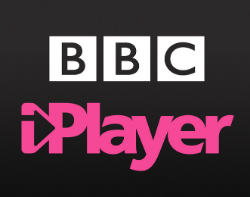With Dotcom Absent, Extradition Hearing Won’t End Today
vendredi 16 octobre 2015 à 17:19 It started off at a decent pace a month ago with regular newsworthy statements and events making the headlines, but his week the extradition hearing of Kim Dotcom appeared to drop into a much lower gear.
It started off at a decent pace a month ago with regular newsworthy statements and events making the headlines, but his week the extradition hearing of Kim Dotcom appeared to drop into a much lower gear.
The hearing, which will determine whether Kim Dotcom, Mathias Ortmann, Finn Batato and Bram van der Kolk are extradited to the United States, got underway in September. However, legal argument has persistently bogged the hearing down, with repeated claims by the defendants that the U.S. government is doing everything possible to prevent them from engaging in a fair fight.
Proceedings should have drawn to a close today but given how things have played out, that definitely isn’t going to happen.
After claiming that the U.S. seizure of the defendants’ funds made it impossible to hire expert witnesses in the United States, Dotcom’s lawyer Ron Mansfield asked the court to consider submissions as to why the case should be paused or even thrown out altogether.
While those have been underway for some days now, according to 3News lawyers for Dotcom and his former associates are now expected to make further submissions on additional points. Allowing for a response from the Crown, that process could take several more weeks to complete.
As to when the hearing will end, that appears to be known by no one, including lawyers for Dotcom. Earlier today, Ron Mansfield QC filed submissions asking Judge Nevin Dawson for an indication of how long the case is likely to last. Dawson is reportedly due at a jury trial elsewhere early November but the extradition hearing is likely to last beyond then.
After being present mostly every step of the way, this week Kim Dotcom has been largely absent from proceedings. Earlier in the week it was reported that the Megaupload founder has been suffering from back pain and as a result didn’t turn up in court.
Today Dotcom was absent from court again, an event which prompted questions from Judge Dawson. Dotcom’s lawyer Ron Mansfield said his client had been awake all night with back issues that are “causing him significant grief”.
However, lawyer Grant Illingworth, who represents Mathias Ortmann and Bram van der Kolk, was present today. He warned the court that the U.S. interpretation of extradition law threatened to make Judge Nevin’s considerations almost irrelevant.
“[The U.S. is seeking to] reduce your honor’s role to a mere rubber-stamping exercise. The US [approach] would render the extradition process largely meaningless,” he told the Judge.
The hearing will now run into a fifth week.
Source: TorrentFreak, for the latest info on copyright, file-sharing, torrent sites and ANONYMOUS VPN services.
 The BBC’s online catchup service
The BBC’s online catchup service 
 It’s been a week of drama for brand new music discovery tool Aurous. Just four days after its launch on Saturday the RIAA
It’s been a week of drama for brand new music discovery tool Aurous. Just four days after its launch on Saturday the RIAA  Last year BMG Rights Management and Round Hill Music
Last year BMG Rights Management and Round Hill Music  Around the world Internet service providers are being placed under pressure to do something about the millions of customers who download and share copyright infringing content.
Around the world Internet service providers are being placed under pressure to do something about the millions of customers who download and share copyright infringing content.